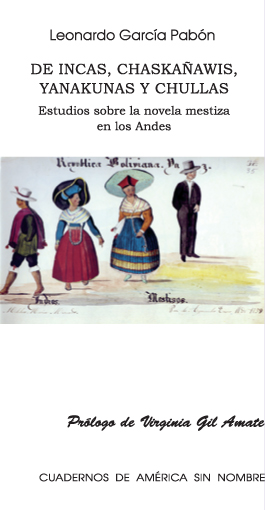Literary Studies
| Narrativa Andina by Juana Manuela Gorriti (2011). (Editor) An edition with an introduction of the narrative related to Bolivia and Perú by Argentinian writer Juana Manuela gorriti. |
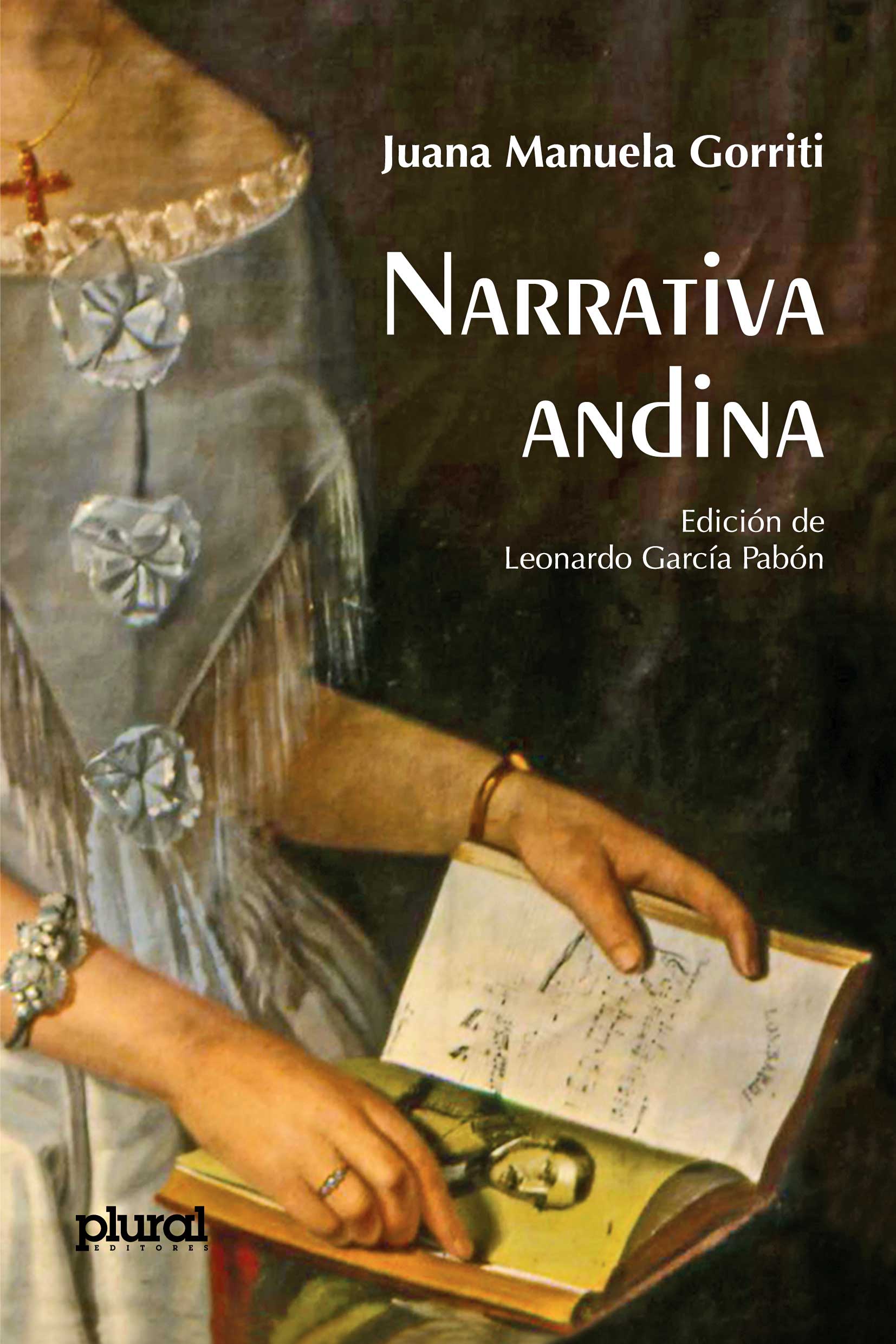 |
| Sagradas poesías by Luis de Ribera (2010). (Editor) An edition and an introduction of this major Golden Age (17th century) poet. It includes a bio-bibliographic study by Josep M. Barnadas, and literary study by Alicia Colombí-Monguió. |
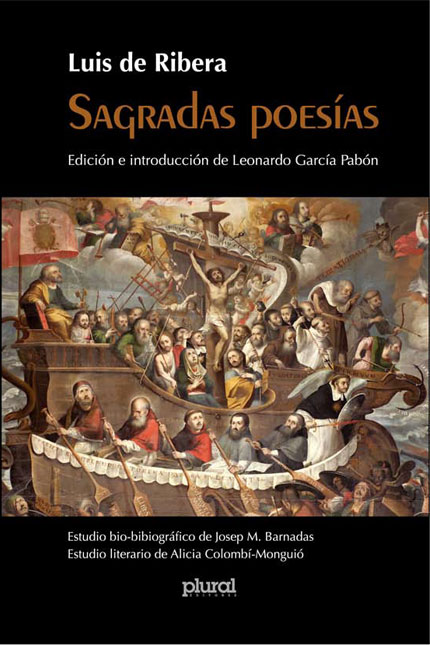 |
|
De Incas, chaskañawis, yanakunas y chullas. Estudios sobre la novela mestiza en los Andes (2007). This book is a study of four novels dealing with representation of mestizos/as. It starts with an introuduction on the literary legacy of Inca Garcilaso de la Vega, and it follows with essays on La quena by Juana Manuela Gorriti, La Ckaskañawi by Carlos Medinacelli, Yanakuna by Jesús Lara, and El chulla Romero y Flores by Jorge Icaza. |
La patria íntima. Estudios sobre la nación en la literatura y el cine en Bolivia (1998). This book traces representations and conceptions of the nation in Bolivian literature since the colonial period until the second half of the 20th century –it includes a chapter on film. Each chapter is dedicated to a representative author of Bolivian literary history: Bartolomé Arzáns, Nataniel Aguirre, Alcides Arguedas, Franz Tamayo, Adela Zamudio, Augusto Céspedes, Oscar Cerruto, Jaime Saenz, and Jorge Sanjinés (film). |
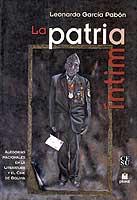 |
|
Relatos de la Villa Imperial de Potosí by Bartolomé Arzáns de Orsúa y Vela (2001). (Editor) This is an anthology of tales that are part of Arzáns' History of the IMperial City of Potosí written between the 17th and 18th centuries in Potosí. These tales show, in a baroque style, the daily life of the silever mining city of Potosí, one of the largest of the Spanish empire at the time. Stories of love and death, greed and devotion, political intrigue and fastuous festivities, reflect the permament conflict of life in a colonial baroque city. |
Intimas by Adela Zamudio (1999). (Editor) Intimas is the first feminist novel of Bolivian literature. it was publshed in 1913, and critized by literary critics (mostly men) as a bad novel. She defended her novel stating that it was a book written by a woman for women. Adela Zamudio was a poet, a narator, a teacher, and a social activist. |
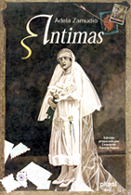 |
| Contact me: lgarcia@uoregon.edu| Department of Romance Languages, 1233 University of Oregon, Eugene, OR 97403-1233, USA
